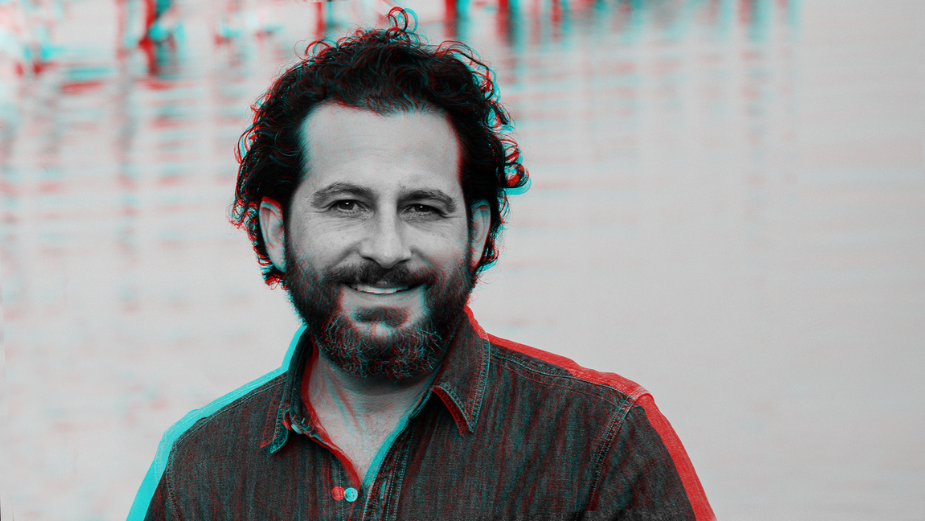
Stephen Goldblatt: How a Photobook Junkie Became a Partner in Crime

Between the pads of a prickly pear cactus, you can often find a fascinating surprise. The cochineal, a near-microscopic insect, likes to make its home within the flowering plant. From there it provides an extraordinary- if a little gruesome - benefit for those curious enough to discover it. It turns out that the diminutive bug, when crushed, produces a beautiful colour we know as ‘crimson’. In fact, the commercial world has lapped up the talents up the cochineal, with ‘scarlet’, ‘magenta’, ‘orange’ and indeed crimson-coloured products all having the insect to thank for their attractive hues.
Just this month, Pantone’s colour of the year for 2023 was announced as ‘viva magenta’, a ‘nuanced crimson tone’ which - in the words of the brand’s own press release - is inspired by the humble cochineal.
The celebrated sessile parasite is also the subject of an exquisite photography book, Crimson Line by Trent Parke. And it’s by way of that book that the cochineal might come up in a conversation with Stephen Goldblatt, (AKA Goldie within most circles) the founder of the creative marketing syndicate Partners in Crime (PiC).
Photobook Finds, an Instagram account digging into stacks of photobooks in search of “stories, art, ideas, and history”, is Goldie’s brainchild. When the veteran creative isn’t setting about challenging the boundaries of our industry through PiC, he can often be found rummaging through used bookstores, estate sales or garage sales and even eBay in search of something worthy of being ‘found again’ and celebrated.
"Scouring for books is half the joy. Whether online or in the stacks of a used bookstore, I enjoy the feeling of discovery - of finding something interesting and of value" says Goldie.
On one hand, Photobook Finds has little to do with Stephen’s work - a relaxing diversion with which to refresh an often-overactive mind. On the other hand, however, there is a clear connection: Curation. For Stephen, the curation of a photobook collection and in PiC’s case, artistic talent, is a career-long theme.
And it’s the foundation upon which Partners in Crime - the self-styled ‘creative syndicate’ launched by Goldblatt in 2015 - is built. A Syndicate as he explains is the uniting of various experts who share a common interest during a temporary alliance to accomplish a goal or project. Whilst years in the making, however, there’s a growing sense that, on the cusp of 2023, the syndicate’s unique model has truly found its moment. “It’s validating to see our projects getting larger and our engagements getting longer. We’ve added many long-term ‘retainer’ clients who are also wanting flexibility. he says. “Clients trust our model. We’re no longer a novel idea or an experiment.”
Above: PiC’s comedic work for the insurance company Hippo helps underline their promise of preventing small things from becoming big issues through preventative tech and proactive services.
Between Two Worlds
“There’s no cut-and-paste formula to the right team”, says Goldie. “But, I often come back to the world ‘selflessness’, or the idea that there’s something bigger than you. When curating a team, you’re trying to create the environment where each person can approach the project with clarity of their role and their expected contribution - along with an open invitation to be collaborative”.
For Stephen, it’s a culture which stands apart from traditional industry structures. “When you extract hierarchy, politics, and ego from the process, you are left with talent, motivation and collaboration”, he says. “It’s a win/win proposition for those involved, but the one who really benefits from it is the brand. They get great work, usually fairly quickly”.
This journey towards a streamlined way of creating can be traced back to an early stage in Goldie’s career. Whilst working abroad in Prague, Stephen noticed some distinct cultural differences.
“In the States, the creative culture celebrated the one-man-band. You’d have a lot of people carefully guarding their work until the final moment they absolutely had to share it internally with others. There was a tangibly competitive nature to it all”, he says. “In Prague it was incredibly collaborative - everyone worked together to get something done. When you won, you’d celebrate together. It was the team’s win. It was a change of pace from a culture which tended to deify the superstars in the roster.”
This is perhaps the most fascinating thread running through Stephen’s career, from its start right up to PiC. It’s the notion that, between the benefits and drawbacks of individualism and collectivism, there’s a middle ground. A space where individuals shine most brightly as part of a collective. At its heart, that’s the promise of PiC - a syndicate where creative minds, assembled via a curated process, meet to create their best work. No matter what the job, PiC’s clients can be assured that they’re working with the best people possible for it.
Ultimately, PiC represents a manifestation of Stephen’s goals whilst working within larger agencies - but one which could only be achieved by striking out on his own. “The fact is that it’s just hard to change the structure of agencies - even from a C-level position”, he says. “There’s a lot of sizable egos to contend with as well as institutional muscle memory that is virtually impossible to break.”
Talking about ‘changing the structure’ might sound trite, especially in an industry which is no stranger to hyperbolic promises. But for Goldie, it’s a meaningful and existential question. Setting up PiC was my attempt to put a sustainable staffing model in place that reflected the flexibility needed by brands today, as well as something which speaks to a creative generation which is looking for smarter ways to work. PiC started life as an agency, but we’ve evolved into a new way of working”.

Above: PiC was tasked with creating a new organising concept for Github’s marketing - one that reflects Github’s product as it exists today - a fully capable enterprise tool - not just one for open source.
Despite that, Goldie is continually looking for ways to improve his syndicate. If the goal is to curate teams that can handle anything thrown at it, all capabilities need to be represented within the roster. “Something I need to get better at is opening up the aperture and including more diverse people in our projects,” he says. “One of my priorities for next year is to get out and meet more people, in-person. I recently did this in New York and met dozens of talented people I had never crossed paths with.”
And when it comes to those conversations, it feels as though Stephen’s ideas are pushing at an open door. “The way I recruit is by presenting this fertile middle ground between freelance and full-time. That you can, and should be, managing yourself as a business and creating flexibility within your schedule, while taking on the type of work you want to do.” he says. “There’s a viable option to the transactional and unstable path of freelance. But, it comes with being responsible and accountable, and the work has to be really strong”.
As the industry continues to navigate a period of intense change, driven by factors including but not limited to the pandemic and the cost of living crisis, there’s an especially poignant appeal to PiC’s setup. Perhaps, as we look ahead to 2023 and beyond, there’s a lot to be said for the middle ground. Why choose between individualism and collectivism, or between full time and freelance, when you can have the benefits of them all?
Returning for a moment to Stephen’s extracurricular interests, Partners in Crime feels like the reward at the end of a long search through dusty shelves of forgotten photobooks. The end result justifies the means. And, in the case of PiC, it was worth waiting for.












